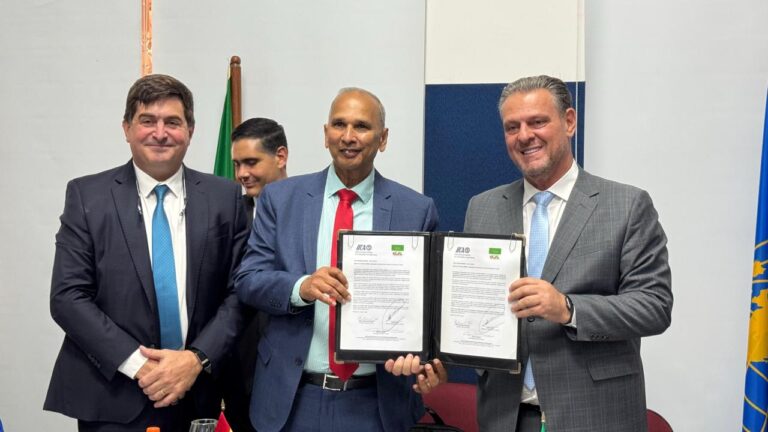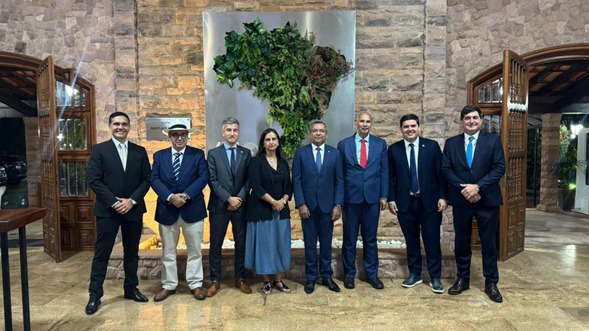The CAC is the organ of the Central American Integration System (SICA) that is responsible for proposing and executing regional actions and projects in the agricultural sector

Mr. Roman Cordero from CAC.
 Santo Domingo, Dominican Republic, January 30, 2018 (IICA). During the second week of January, Mr. Roberto Harrison, Executive Secretary of the CAC and Mr. Roman Cordero, Specialist in Regional Integration and International Cooperation of the CAC made a courtesy visit to the IICA Delegation in the Dominican Republic.
Santo Domingo, Dominican Republic, January 30, 2018 (IICA). During the second week of January, Mr. Roberto Harrison, Executive Secretary of the CAC and Mr. Roman Cordero, Specialist in Regional Integration and International Cooperation of the CAC made a courtesy visit to the IICA Delegation in the Dominican Republic.
The Central American Agricultural Council is comprised by the Ministers of Agriculture from Belize, Costa Rica, El Salvador, Guatemala, Honduras, Nicaragua, Panama and the Dominican Republic. Since the 10th Regional Summit, held in El Salvador in July 1991, the CAC is recognized as the institutional mechanism for linking the agricultural sector with other bodies of Central American integration.
This role was formally consolidated with the signing and entry into force of the Protocol to the General Treaty of Central American Economic Integration (Guatemala Protocol), in which the CAC was defined as one of the organs of the regional Economic Integration Subsystem. The CAC has a Council of Ministers, a Regional Technical Committee and Regional Technical Subcommittees on specific issues, as well as a Technical and Administrative Support Secretariat based in Costa Rica.
Likewise, the CAC has institutional mechanisms for dialogue with various regional organizations of the private sector and coordination with regional and international technical and financial cooperation organizations that support the sector at the regional level.
In order to guide regional actions in the agricultural sector, the CAC approved the “Central American Agricultural Policy 2008 – 2017: A competitive and integrated agriculture for a global world”, which was welcomed by the Heads of State and Government of the SICA countries during its XXXI Ordinary Meeting held on December 12, 2007, in Guatemala.
During the productive meeting, Mr. Frank Lam, IICA Representative in the Dominican Republic, expressed his interest in strengthening the cooperation with the CAC Executive Secretariat (SE-CAC) in the country and offered all the necessary conditions in order to build a national work agenda with local and regional partners. Likewise, during the visit and within the framework of the PROCAGICA-RD Project, Mr. Lam shared the progress of the project and its linkage with the SE-CAC for the implementation of regional activities.
More information: Frank Lam, IICA Representative in the Dominican Republic, frank.lam@iica.int











